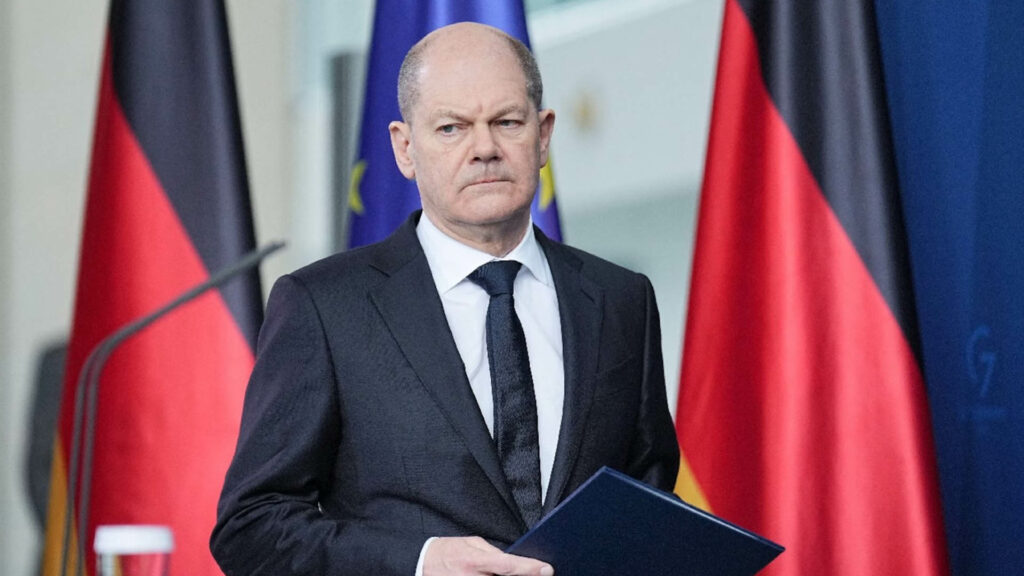Trending: Here are some Business Statistics and Trends to know
|
Getting your Trinity Audio player ready...
|
The coalition under German Chancellor Olaf Scholz faces an unprecedented challenge following a court ruling that shook the country's financial foundation, causing a staggering 60 billion euros gap in the budget. This abrupt turn has put a dent in the government's plans, impacting critical sectors and casting a shadow on Germany's economic stability.
Court Ruling Puts Budget Talks on Hold
The postponement of budget talks, initially slated for Thursday in parliament, reflects the complexities faced by Scholz's coalition, comprising the Social Democrats (SPD), Greens, and the Free Democrats (FDP). The constitutional court's ruling blocked the transfer of unused pandemic funds to support green investments and industry, raising concerns about the economic repercussions.
Impact on Germany's Economy and Industry Support
The ongoing budget crisis has triggered warnings about a potential drag on Germany's already delicate economy in the coming year. Projects and subsidies crucial for maintaining industrial competitiveness are now at risk, amplifying concerns about the economic trajectory.
Seeking a Solution: Legal Compliance and Spending Pledges
To navigate this fiscal challenge, the coalition is exploring options, including crafting a supplementary budget for 2023 and temporarily suspending Germany's self-imposed debt brake. The goal is to address spending commitments, ensuring legal compliance and financial stability.
Uncertainty Grips German Economy: Implications for 2024 Budget
The delay in budget talks has introduced heightened uncertainty across various sectors of the German economy. The conclusion of the 2024 budget by year-end is now in jeopardy, casting a shadow over government spending plans.
Industry Voices Concerns and Calls for Clarity
Industry leaders, including the BDI industry association and Greens Economy Minister Robert Habeck, are expressing apprehension. Habeck warns that Germany's status as an investment hub and job provider is in jeopardy. Industry heads emphasize the urgent need for clarity to avoid disruptions in planning.

Potential Ramifications on International Commitments and Investments
The fallout from the court ruling extends beyond Germany's borders, impacting EU politics and commitments. A revised EU budget deal becomes less likely, and the bloc's 50 billion euro commitment to fund Ukraine through 2027 is under threat.
Industry-Specific Repercussions: Strain on Economic Sectors
The budget crisis's ripple effects across industries in Germany are significant and multifaceted, posing specific challenges and uncertainties.
Automotive Industry's Concerns: Critical Delays and Global Competitiveness
The influential VDA autos association, representing automotive giants like BMW and Volkswagen, has expressed serious concerns. The industry faces substantial disruptions, impacting critical planning and investment decisions.

The delay in budget discussions cast shadows on vital projects, including those related to electric vehicle development and technological advancements. This uncertainty undermines Germany's competitive edge in the global automotive market.
Semiconductor Sector: Threats to Tech Innovation
The court ruling's aftermath has rattled the semiconductor industry. Commitments to U.S. chipmaker Intel and discussions with Taiwanese chipmaker TSMC are at risk.

This poses a threat to Germany's vision of fostering critical technologies on home soil. The uncertainty surrounding these investments could impede advancements in semiconductor manufacturing and innovation, impacting not only Germany's tech landscape but also its standing in global tech supremacy.
Hydrogen Industry's Growth: Challenges and Investment Pivots
The nascent hydrogen sector, where Germany had pinned high hopes for future growth, now faces ambiguity. Companies like Thyssenkrupp acknowledge that the budget disruptions may impact Germany's hydrogen ambitions.

The uncertainty complicates negotiations with potential hydrogen suppliers and creates delays in strategic partnerships. This could hamper the country's renewable energy goals and hinder Germany's transition to clean energy sources.
Energy Transition and Industrial Innovation: Disrupted Plans and Strategic Alliances
The upheaval in the budgetary landscape raises concerns about Germany's commitment to its energy transition plans. The industry is looking for a clear and stable financial framework to advance partnerships and trade agreements, critical for strengthening Germany's position as an industrial hub.
The disruption risks stalling vital agreements, impacting innovation and collaborations necessary for driving industrial advancements and securing vital raw materials.
Conclusion: The Urgent Need for Stability and Clarity
The far-reaching impact of the budget crisis is palpable across diverse sectors, threatening Germany's industrial and technological progress. The urgency for clarity and a stable financial framework is crucial for industries to plan, innovate, and invest.
The uncertainty has underscored the imperative for swift resolutions to safeguard economic sectors and maintain Germany's competitive edge on the global stage.



